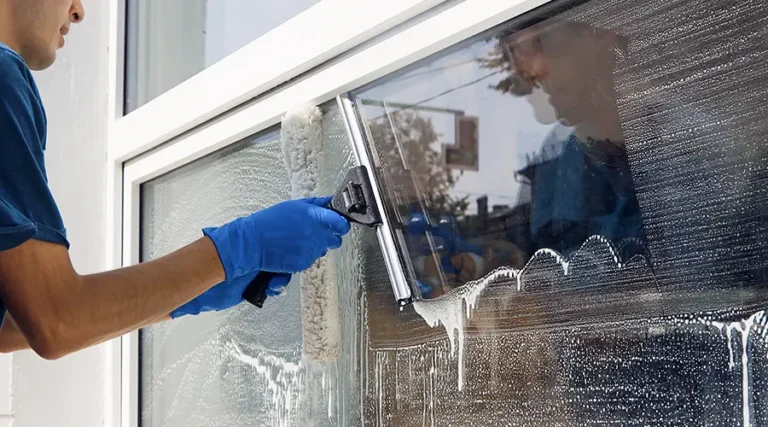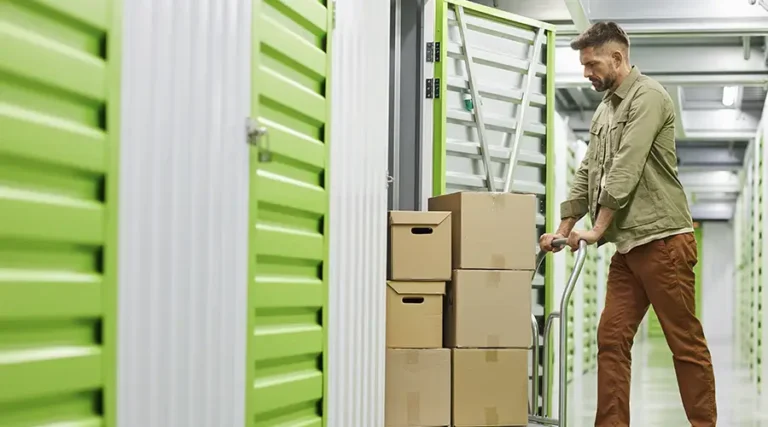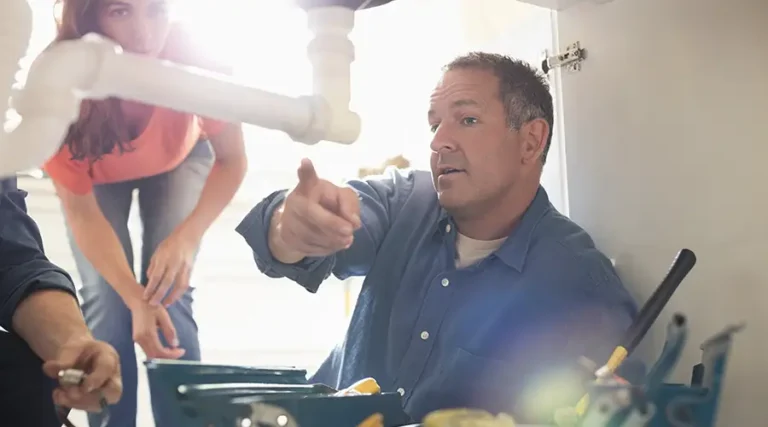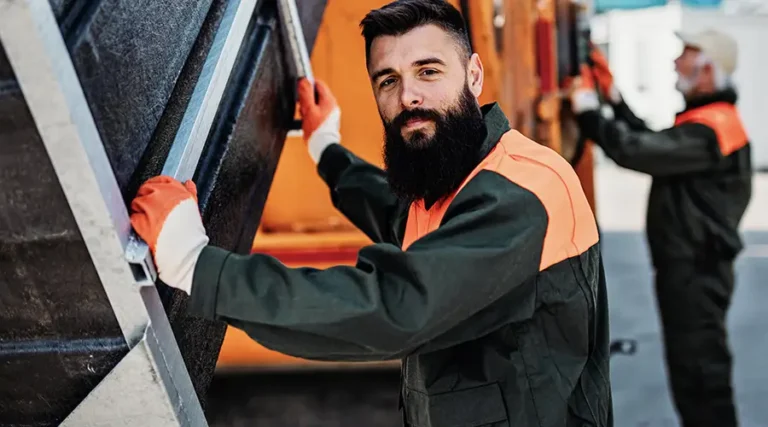How to Start a Car Wrapping Business
Our Step-by-Step Guide to Launching a Successful Car Wrapping Business in 2023
Interested in learning how to start a car wrapping business? Starting a car wrapping business can be a rewarding and lucrative venture for individuals with a passion for cars and a creative mindset.
The growing popularity of personalized vehicle wraps has created a high demand for skilled professionals in the industry. By providing high-quality and unique car wrap designs, entrepreneurs can carve out a niche for themselves and build a thriving business in this field.
Before diving into the car wrapping business, it’s crucial to develop a well-structured business plan that outlines the necessary steps and investments required to succeed in this competitive market. This includes securing the appropriate funding, understanding the material and labor costs, and deciding on a suitable location for the business. Additionally, becoming familiar with the legal requirements and proper techniques for car wrapping is vital for ensuring long-term success.
By honing your skills and carefully considering the various aspects of starting a car wrapping business, you can set yourself up for a fulfilling and profitable career.
Keep in mind that dedication, persistence, and adaptability are key factors in overcoming potential challenges and staying ahead of the competition in this ever-evolving industry.
In This Article
- Understanding the Vehicle Wrap Industry
- Developing a Business Plan
- Choosing a Legal Structure
- Securing Funds for Your Business
- Setting Up Your Business Space
- Sourcing Vinyl Wrap and Decal Supplies
- Obtaining Licenses, Permits, and Insurance
- Preparing for Vehicle Wrapping Operations
- Marketing Your Car Wrapping Business
- Managing Your Business for Success
- Conclusion: How to Start a Car Wrapping Business
- Footnotes
Understanding the Vehicle Wrap Industry
Types of Wraps
In the vehicle wrap industry, there are several types of wraps to choose from when starting a car wrapping business. The most common types include single-color wraps, full wraps, and custom designs. Single-color wraps are designed to change the vehicle’s entire color with a solid, uniform shade. Full wraps, on the other hand, cover the entire vehicle with a custom design or pattern, often used for advertising purposes.
Market Analysis
Market research is crucial when starting a car wrapping business, as it helps to determine the potential demand and profit margins. One vehicle wrap can generate between 30,000 – 80,000 impressions daily, making it an effective marketing tool that reaches 92% of U.S. residents. If you have a fleet of vehicles, this number can increase significantly. On average, a $20,000 investment buys 8.4 million yearly impressions with vehicle wraps, showcasing its potential for high profit margins.
Pros and Cons
The vehicle wrap industry offers numerous benefits for car wrapping businesses, such as the potential for high profitability and a growing demand for the service. With vinyl wraps being a popular choice among car owners, the market for vehicle wrapping is expanding.
However, there are also challenges when starting a car wrapping business, such as sourcing quality materials and ensuring proper installation procedures. It’s essential to find a reliable supplier for materials like vinyl, as poor quality wraps can negatively impact a business’s reputation and profit margin.
Overall, understanding the vehicle wrap industry, types of wraps, and conducting market analysis are crucial steps when starting a car wrapping business. By carefully considering the pros and cons and staying up-to-date with industry trends, entrepreneurs can make informed decisions, leading to a successful and profitable venture.
Developing a Business Plan
Business Model
- Offered services: Outline the range of vehicle wrapping services you’ll provide (e.g., full wraps, partial wraps, decals, and graphics). Consider additional services like window tinting or paint protection films.
- Target audience: Identify your target customers, such as individual vehicle owners, small businesses, and fleet operators, to better tailor marketing efforts and service offerings.
- Revenue streams: Determine pricing structures, taking into account factors like materials, labor, and market conditions, as well as potential supplementary revenue sources like maintenance contracts or design consultations.
Market Research
- Industry overview: Explore trends, size, and growth of the car wrapping industry to understand the opportunities and challenges you may face.
- Competitor analysis: Examine the strengths and weaknesses of existing car wrapping businesses in your location to identify potential gaps and areas for differentiation.
- SWOT analysis: Assess your business’s strengths, weaknesses, opportunities, and threats to formulate strategies and address areas of improvement.
Operational Plan
- Location: Decide on a suitable location with ample space for storing materials, equipment, and vehicles during the wrapping process.
- Equipment and Suppliers: Research the required equipment for car wrapping (e.g., printers, laminators, vinyl rolls) and establish relationships with reliable suppliers.
- Business Structure: Choose an appropriate business structure (e.g., sole proprietorship, LLC, corporation) to determine liability and tax obligations.
Marketing Plan
- Brand Identity: Develop a unique and memorable brand, including logo, color scheme, and messaging that resonates with your target audience.
- Online Presence: Establish a user-friendly website showcasing your services, portfolio, testimonials, and contact information.
- Promotional Strategies: Implement a mix of marketing tactics like social media advertising, influencer partnerships, and Google Ads to reach potential customers.
Financial Plan
- Startup costs: Estimate the costs of setting up your car wrapping business, including equipment, inventory, facility, business licenses and permits, marketing expenses, and initial working capital.
- Financing: Explore various financing options, such as loans, grants, or personal savings, suitable for small businesses in the car wrapping industry.
- Revenue forecasts: Project sales, expenses, and profits over a predetermined period to assess viability and growth potential.
- Business bank account: Open a separate account to organize transactions, track expenses, and manage taxes.
- Licenses and Permits: Research and apply for the necessary licenses and permits required to operate a car wrapping business in your region.
When planning your car wrapping business, providing in-depth information and actionable advice in a clear and concise manner will help set you on the path to success. Remember to consider the different aspects of your business plan and tailor them to your specific goals and target market.

Choosing a Legal Structure
When starting a car wrapping business, one of the first and crucial decisions to make is choosing an appropriate legal structure. The legal structure will determine your business registration requirements, taxes, and personal liability, among other factors.
Sole Proprietorship
A sole proprietorship is the simplest and most common structure for small businesses. In this type of arrangement, there is no legal distinction between the business owner and the company.
- Advantages: easy to set up, fewer legal and tax requirements, low start-up costs.
- Disadvantages: personal liability, difficulty in raising capital.
Partnership
A partnership involves two or more individuals or entities working together and sharing the profits, losses, and responsibilities of the business. Partnerships can be general or limited, with general partners participating in all aspects of the business, while limited partners have less involvement and liability.
- Advantages: shared responsibilities, more resources, pooling of talents and skills.
- Disadvantages: disagreements among partners, division of profits, personal liability.
Limited Liability Company (LLC)
An LLC is a hybrid business structure that combines aspects of sole proprietorships, partnerships, and corporations. Owners, known as members, have limited personal liability for business debts and actions while enjoying a flexible management structure.
- Advantages: limited personal liability, tax flexibility, fewer restrictions.
- Disadvantages: more complex setup, additional fees, possible changes in legal and tax requirements by state.
Corporation
A corporation is a separate legal entity from its owners (shareholders). It can enter into contracts, incur debt, and be held legally responsible for its actions.
- Advantages: limited personal liability, easier access to funding, increased credibility.
- Disadvantages: higher setup costs, more legal and tax requirements, complex management structure.
| Legal Structure | Features | Advantages | Disadvantages |
|---|---|---|---|
| Sole Proprietorship | Simplest and most common structure; no legal distinction between owner and company. | Easy to set up; fewer legal and tax requirements; low start-up costs. | Personal liability; difficulty in raising capital. |
| Partnership | Involves two or more individuals or entities; can be general or limited; profits, losses, and responsibilities are shared. | Shared responsibilities; more resources; pooling of talents and skills. | Disagreements among partners; division of profits; personal liability. |
| Limited Liability Company (LLC) | Hybrid structure that combines aspects of sole proprietorships, partnerships, and corporations; members have limited personal liability and flexible management. | Limited personal liability; tax flexibility; fewer restrictions. | More complex setup; additional fees; possible changes in legal and tax requirements by state. |
| Corporation | Separate legal entity from owners (shareholders); can enter contracts, incur debt, and be held responsible for its actions. | Limited personal liability; easier access to funding; increased credibility. | Higher setup costs; more legal and tax requirements; complex management structure. |
Before deciding on a legal structure, make sure to research the specific business licenses and permits required in your area. Additionally, consider consulting with an attorney or tax professional for advice tailored to your unique car wrapping business and goals.
Securing Funds for Your Business
Starting a car wrapping business requires a significant amount of capital, and finding the right funding option is critical. Below are some popular sources for securing funds.
Friends and Family
One common approach to secure funds is by approaching friends or family members for investment. This method is popular due to the personal connection and potentially lower interest rates as compared to traditional financing options. It’s important to discuss the terms and conditions in detail with the involved parties and set realistic expectations to maintain a healthy relationship.
Outside Investors
You may also opt to raise funds from outside investors such as angel investors or venture capitalists. To attract such investors, be sure to develop a robust business plan with a clear market analysis and solid financial projections. Keep in mind that obtaining funding from outside sources will likely involve giving up a certain level of control or equity stake in the business.
Bank Loan
Obtaining a bank loan is another secure method of funding your car wrapping business. In order to qualify for a loan, you may need to present a well-researched business plan, demonstrate your creditworthiness, and have collateral to secure the loan amount. Interest rates and terms vary depending on the institution, so it’s crucial to explore various banks and credit unions to find the best fit for your needs.
Hard Money Lender
A less common but potentially viable option is to seek financing from a hard money lender. These lenders typically focus on the business’s assets and potential for success, rather than the borrower’s credit score. Although hard money loans come with higher interest rates and shorter repayment terms, they can be beneficial for businesses that require quick access to funds or have struggled to obtain a traditional loan.
Bootstrapping
Another option for funding your car wrapping business is bootstrapping, which involves using personal savings or relying on business revenues to fund the venture. This requires keeping initial startup costs low, such as opting for used equipment and negotiating with suppliers. Bootstrapping enables entrepreneurs to maintain full control of their business and avoid debt, but it may limit speed of growth due to constrained financial resources.
Setting Up Your Business Space
Selecting a Location
When starting a car wrapping business, it is crucial to choose an optimal location for your workspace. Consider a site that is easily accessible to your target market and has enough room for your business operations. It’s essential to research the local competition in the area and identify any growth opportunities. Proximity to related businesses, such as automotive dealerships or repair shops, can also be beneficial in building partnerships and attracting customers.
Building or Garage Space
The choice of building or garage space is a significant factor in setting up your car wrapping business. Ensure the area has adequate square footage for your equipment and supplies, as well as room for vehicles to maneuver comfortably. It’s also important to ensure proper ventilation and lighting, critical elements for creating high-quality wraps. Consider your business’s potential growth and the possibility of hiring additional staff when determining the appropriate dimensions for your workspace. In addition, you may want to look into leasing options, as they can provide flexibility and save on initial investment costs.
Essential Equipment
Your car wrapping business will require a range of equipment to carry out installation tasks efficiently. Some key items you will need include:
- A large format printer for producing vinyl wraps
- Laminator to apply protective coatings
- Vinyl cutter for precise cutting and trimming of the wraps
- Heat gun or industrial heat press to adhere the wrap to vehicle surfaces
- Squeegees and application tools for smooth and even wrap installation
- Various tools for disassembly and reassembly of vehicle parts, such as screwdrivers, pliers, and wrenches
- Cleaning supplies to ensure the vehicle surface is free of dirt and debris before wrap application
Having the right equipment and supplies in place is essential to your car wrapping business’s success, as it allows you to provide high-quality services and meet customer expectations. Invest in reliable and durable tools and machinery, as this will improve your output and minimize problems down the line.
Sourcing Vinyl Wrap and Decal Supplies
Finding Suppliers
When starting a car wrapping business, one of the crucial steps is finding reliable suppliers for vinyl wraps and decals. You’ll need high-quality vinyl rolls and related materials to ensure that your clients are satisfied with the results. To begin your search, consider attending industry trade shows, reaching out to local businesses in the printing sector, or exploring online directories to find reputable vendors. It is also essential to compare prices, delivery times, and the variety of products offered by different suppliers to make the best decision for your business.
Popular Brands and Products
There are numerous brands of vinyl wraps available in the market, catering to different needs and budgets. Some popular options include:
- 3M: Known for its durability and versatile product lineup, 3M offers a wide range of vinyl wraps suitable for both professionals and beginners.
- Avery Dennison: Another popular choice for car wrapping businesses, Avery Dennison provides high-quality vinyl products that are easy to apply and offer reliable adhesion.
- ORAFOL: As a global leader in the signage industry, ORAFOL offers a variety of high-quality vinyl wraps with a vast selection of colors and finishes.
When selecting products to use in your car wrapping business, consider factors such as ease of installation, adhesive properties, and the finish of the final product. Additionally, it’s vital to familiarize yourself with any warranty or customer support offered by the vinyl manufacturers.
| Brand | Pros | Cons |
|---|---|---|
| 3M | Durable, versatile assortment | May be expensive |
| Avery Dennison | High-quality, easy to apply | Limited selection of finishes |
| ORAFOL | Wide range of choices | Less known than competitors |
Evaluating Suppliers
Before committing to working with a supplier, it’s essential to evaluate them based on factors such as price, delivery times, and customer support. Request samples of their products to assess the quality of the vinyl and ensure that it meets your standards. It’s also necessary to maintain open communication with your suppliers and establish a strong working relationship to address any concerns that may arise.
In summary, sourcing vinyl wrap and decal supplies is crucial to your car wrapping business’s success. Spend time researching trusted suppliers, evaluating popular brands and products, and working towards building long-term relationships with your chosen vendors.
Obtaining Licenses, Permits, and Insurance
Legal Requirements
To operate a car wrapping business, it is essential to register your business and obtain the necessary licenses and permits. First, register your business with the state and obtain a tax ID number. Afterward, make sure to acquire a business license, which may vary depending on your location. Research local regulations and consult with local authorities to ensure compliance with building codes and zoning requirements1.
Coverage Options
In addition to licenses and permits, your business needs insurance to operate safely and lawfully. Liability insurance is crucial, as it protects your business from potential claims arising from accidents, property damage, or injuries caused during the course of your work. Here are some common types of insurance coverage for a car wrapping business:
- General Liability Insurance: This covers bodily injury, property damage, and advertising injury, protecting your business from personal injury or property damage claims by third parties.
- Commercial Auto Insurance: As your business involves working with vehicles, commercial auto insurance is necessary to cover any accidents or damages that may occur while using company-owned vehicles.
- Workers’ Compensation: If you have employees, every state (except for Texas) requires you to carry workers compensation insurance2. This coverage helps provide financial assistance to employees who sustain work-related injuries or illnesses.
- Business Owners Policy (BOP): A BOP combines several types of insurance into one policy. This often includes general liability insurance, commercial property insurance, and business interruption insurance. Small to mid-sized businesses may find a BOP an affordable and convenient option3.
Overall, it’s vital to research the specific insurance requirements for a car wrapping business in your state and industry. Consult with an insurance agent to select the right coverage options for your business and ensure that you are adequately protected against potential risks.
Preparing for Vehicle Wrapping Operations
Acquiring Necessary Skills and Training
Before starting a vehicle wrapping business, it is essential to acquire the necessary skills and training. This includes learning how to properly apply vinyl wraps to various vehicle surfaces, as well as understanding best practices for efficient and high-quality outcomes. Many professionals undergo training courses, such as those offered by vinyl wrap manufacturers or specialty institutes, to learn the techniques and gain hands-on experience.
Wrap Installation Tools
Having the right tools for wrap installation is crucial for ensuring professional results. Some essential items include:
- Squeegee: A squeegee is a tool used to smooth out the vinyl wrap during the application process, working to remove air bubbles and wrinkles.
- Heat Guns: Heat guns are used to help mold the vinyl wrap around curves and contours of the vehicles. They also can be used to fix minor imperfections during the install.
- Gloves: Wearing gloves helps prevent fingerprints and other contaminants from getting onto the wrap during the installation process.
Cleaning Supplies
Proper cleaning of the vehicle is essential for a successful wrap installation. Some cleaning supplies necessary for this process include:
- Microfiber Towel: This type of towel is excellent for cleaning the vehicle’s surface, ensuring it is free of dust, dirt, and residue before the wrap is applied.
- Glass Cleaner: This product is used to clean the vehicle’s windows, mirrors, and other glass surfaces before applying any window tinting or vinyl wraps.
Additional Services
Aside from the core business of vehicle wrapping, offering additional services can help attract a wider range of clients and increase revenue. Examples of such services include:
- Window Tinting: Applying window tints is a natural extension of the vinyl wrapping skillset, as it requires similar techniques and tools, such as squeegees and heat guns.
- Full Wraps: Providing full wraps entails completely covering a vehicle’s surface with a custom design or color change. This service is more comprehensive and can generate higher income compared to partial wraps or graphics.
In summary, preparing for vehicle wrapping operations involves acquiring the necessary skills and training, investing in essential tools and cleaning supplies, and considering additional services to enhance the business offering. By being well-prepared, business owners can ensure they deliver high-quality results to their clients while maximizing profitability.
Marketing Your Car Wrapping Business
Advertising Strategies
One crucial aspect of starting a car wrapping business is creating a solid advertising strategy. Social media platforms like Facebook and Instagram are excellent options for reaching potential customers. You may also consider running digital advertisements to increase your online visibility. Additionally, collaborating with influencers can help you tap into their large follower base and market your business effectively.
Another advertising method is pay-per-click marketing, like Google AdWords, to improve your company’s search engine ranking. Make sure to research relevant keywords before investing in pay-per-click marketing.
Branding and Business Cards
A strong brand identity helps you stand out from the competition and shows your customers the value of your services. Work on creating a unique logo, color scheme, and visual elements that reflect your company’s personality. Use these elements across your marketing materials, including business cards.
Business cards play a vital role in networking and building connections within your niche. Make sure your business cards are professionally designed and display your logo, contact information, and types of wraps available. Hand out your cards at relevant events and meet-ups to establish relationships with potential clients.
Pricing and Service Promotions
When starting a car wrapping business, it’s essential to conduct a market analysis to understand your competitors and their pricing strategies. Determine the price points based on factors like material costs, labor, and market trends. You may want to offer introductory prices or discounts to attract initial customers.
Promotional activities, such as referral programs or special discounts, can improve customer engagement and increase word-of-mouth referrals. Here are a few promotion ideas:
- Referral programs: Offer incentives to customers who bring in new clients.
- Discounts and coupons: Provide exclusive discounts on specific wrap services or bundle deals.
- Contests and sweepstakes: Organize contests on social media or through your website to win free or discounted wraps.
By implementing these marketing strategies, your car wrapping business will be well-positioned for success. Remember to monitor and adjust your marketing plan as needed to continuously improve and evolve in the competitive market.
Managing Your Business for Success
Financial Management
Proper financial management is crucial to the success of a car wrapping business. To start, create a business plan outlining key goals and strategies. It is essential to have a clear financial plan that includes projections for revenue and expenses. Open a business bank account and set up necessary taxes and accounting systems.
Key aspects to consider in financial management:
- Budgeting and forecasting
- Expense tracking and cost control
- Cash flow management
- Profitability analysis
Labor and Hiring
A successful car wrapping business requires skilled labor to perform wrapping services and manage operations. Hiring well-qualified professionals who are knowledgeable in wrapping techniques is essential. It’s also necessary to adhere to local labor laws and regulations, which may include obtaining specific permits and licenses.
Consider these points when managing labor and hiring:
- Develop a hiring process and onboarding system
- Train employees in proper vehicle wrapping techniques
- Maintain clear communication channels between management and staff
- Implement employee retention strategies to reduce turnover
Continuous Improvement
Car wrapping businesses should aim for continuous improvement in processes, services, and customer satisfaction. Researching new wrapping materials, techniques, and technologies will keep your business at the forefront of the industry. Consistently evaluate pricing strategies and seek avenues to reduce costs without compromising on quality.
Consider the following continuous improvement strategies:
- Implement a customer feedback system to identify areas for improvement
- Monitor and analyze competitors to stay updated on industry trends
- Attend industry conferences and events to learn about new developments
- Regularly review and update your business plan based on real-world performance and new market insights
Conclusion: How to Start a Car Wrapping Business
In summary, starting a car wrapping business can be a profitable venture with the right approach and preparation. The first step is to create a business plan that outlines your goals and strategies in detail. This should include a thorough market analysis, a comprehensive operational plan, and a clear understanding of your target audience.
Once the plan is in place, it’s essential to create a legal business entity and obtain the necessary permits and licenses. Opening a business bank account and setting up accounting systems will ensure your finances are well-organized and consistent with legal requirements.
A crucial aspect of a successful car wrapping business is choosing the right equipment and installation procedures. This includes investing in quality materials that will ensure a long-lasting and professional finish for your clients’ vehicles. Additionally, being skilled in magnetic and masking tape techniques will make the installation process smoother and more efficient.
Effective marketing strategies are vital for the growth of your car wrapping business. Consider using social media ads, pay-per-click marketing, and influencer marketing to reach your target audience and drive business to your new enterprise.
Lastly, it’s essential to set competitive prices for your services that reflect your expertise and the quality of your work. As your business grows, stay up-to-date with the latest trends and technologies in the industry, ensuring that your car wrapping business remains relevant and competitive.
By carefully planning and executing these steps, an entrepreneur can establish a successful car wrapping business that offers a rewarding and profitable career path.











